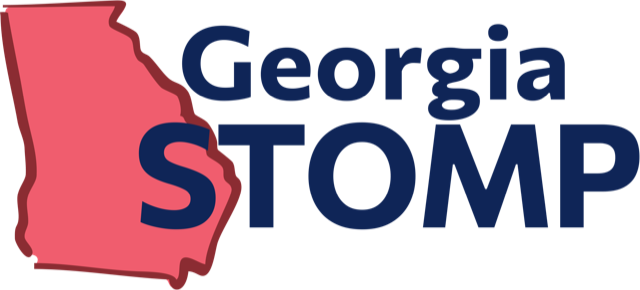Georgia STOMP Partners Rock!
It isn’t news to any of us that the pandemic has resulted in lost or reduced wages for many Georgians. The Georgia STOMP coalition is aware of food and housing insecurities many are experiencing, and that concern extends to the increase in period poverty amongst menstruators.
Necessary public health safety measures, like limitations on size and ability to gather, have forced sudden operational changes onto non-profits and agencies working in our communities. In light of this, we reached out to Georgia STOMP Coalition partners seeking updates on how collection and distribution of period products is occurring in the time of COVID-19.
Be inspired by their work and their ability to “pivot” in their mission and modes of operating!
POSH PACK
“The biggest challenge of Covid-19 for Posh Pack Inc. has been adapting in a pandemic to continue to serve our communities, but through a different lens. With the shutdown of schools, it no longer served our target population to provide donations to schools without students present. We really had to rethink how to fulfill our mission and do it in a way that was safe in a pandemic. After speaking with a number of organizations, it was apparent that menstrual items were needed more than ever. We discovered many parents were already going to food pantries to receive food donations. It made sense to connect the two and have parents be able to receive food and feminine hygiene items at the same time.
As a result, Posh Pack, Inc. has developed a programming focus to make sure young women and girls have access to feminine hygiene during the pandemic. Posh Pack, Inc. spent February through July, giving feminine hygiene essentials to different organizations that are directly connected to women and girls who need these items most. Since February, as a result of donations, we have been able to give 5000 pads to organizations to include food pantries, homeless shelters, and civic organizations focused solely on period poverty. With continued support from donors, we hope to donate over 10,000 pads by the end of the year.” — Dr. Elesia Glover
PERIOD ATLANTA.
“PERIOD Atlanta is working harder than ever to meet the needs of menstruators in Greater Atlanta. This past summer, we donated more than 6,000 menstrual products to various organizations, including the Clarkston Community Health Center and Women’s Refugee Network. Despite the geographic distribution of our officers and members throughout the metropolitan area, PERIOD Atlanta hopes to use the new virtual opportunities that the pandemic has opened up for us and start working in the advocacy arm of our work in the fall.” – Sophie Lee
HOMELESS PERIOD PROJECT OF ATLANTA
The Homeless Period Project of Atlanta has completely shifted our way of doing things.
Instead of the excitement of period packing parties, we’re now asking for products either by purchasing off our Amazon Wish List or just buying and mailing to us.
The four board members divide and conquer by packing at home and delivering to our community partners. The need is still there and we are working HARD to fulfill.
Please visit our Instagram page (@homelessperiodprojectofatlanta) for updates and information. Our wishlist link is in our bio. One box of pads helps. It’s that simple. Please email us if you want to get involved. atlanta@homelessperiodproject.org — Torrey, Brittany, Rilla and Jennifer
LA LUNE
“Currently, La Lune has donated 559 care packages (5,964 menstrual products) and we are working on delivering at least 200 more before the end of the month. As the global pandemic has disproportionately affected marginalized communities, we have been donating to those in great need in Atlanta, Georgia; Bronx, NY; and Houston, Texas. In Atlanta, we have donated to City of Refuge Atlanta and Covenant House Georgia. We are continuing donations to refugee centers, detention centers, and any community centers that request such donations.
We have also partnered with re-entry intervention programs such as the Gwinnett Re-entry Intervention Program (working in Gwinnett County Jail). After touring the facilities and talking with Sergeant Baird from the GRIP program, we are beginning to establish a PenPal and Zoom interactive program with individuals (primarily women and all menstruators). The GRIP program works to aid in core issues such as drug addiction, mental health, and poverty and provides housing and case management upon release, access to mental health services, a primary care doctor, and job assistance. In addition to the discomfort around menstruation, there is a prevalent disconnect between those in the prison system and the rest of the community due to prejudice and stigma. To bridge this gap, we are interviewing and releasing the stories of consenting individuals with our photojournalist: Jade Hidalgo. We want to show the public that these are good people and connect them with the community with monthly Zoom calls to truly get to know these individuals and establish solid relationships.
We are working with DivaCares and researchers from UGA and Emory to establish our first official educational program in Clarkston, Georgia. The classes will be held online and will work with 4th and 5th graders on the topic of menstruation. This education program will teach boys, girls, and all genders in an all-inclusive, discussion-based environment. We are working towards a future in which the stigma around menstruation is eliminated and all menstruators are well-equipped and educated on proper menstrual hygiene. However, it is important that all students learn about menstruation, before they, and their friends get their periods. We will also be providing menstrual products and hygiene essentials to our students and their families. — Stella Kwon
If we haven’t heard from you, send us your stories and how your organization has morphed and adapted during 2020!
